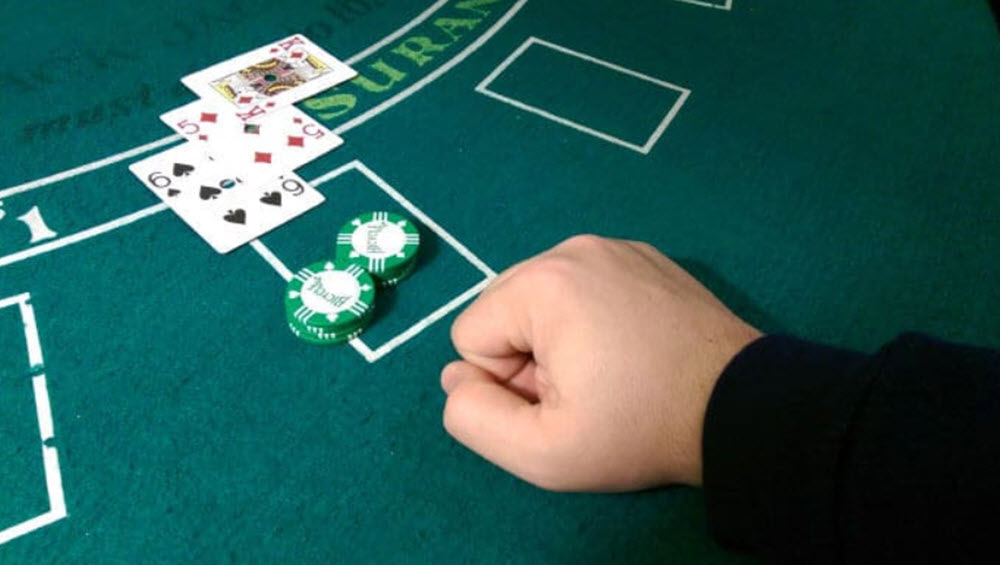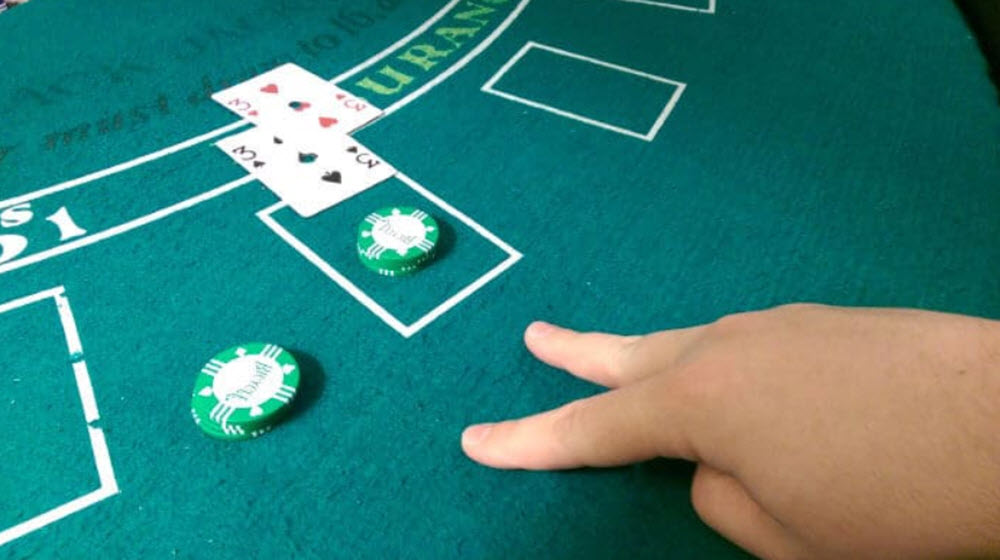Doubling at the blackjack table

Many casinos will allow you to double the wager after seeing your start hand (the first two cards) if the value of the hand is within a certain span, typically the 7 point – 11 point range.
If you elect to double the wager, you get one more card on the hand. Even if that card turns out to be a duece or some other low card, you will no get any more cards.
Splitting at the blackjack table

Many casinos will allow you to split your start hand (the first two cards) if both cards are of identical point value.
If you elect to split a hand, you must make a new wager of exactly the same size as your original wager.
Your two original cards will then form the base for two new start hands.
Example of splitting:
Your start hand consists of an eight and another eight. You elect to split them, and place a new wager on the table. The dealer physically moves the eights appart from each other, and place a new card with the first eight. This is now a new start hand and you play it just like a new start hand. When you have played your first hand (stayed o lost it), the dealer will place a new card on the second eight and create another start hand for you. You play this start hand too, just like any other start hand.
Example of serial splitting:
Your start hand consists of and eight and another eight. You elect to split them, and place a new wager on the table. When the dealer places a new card on your first eight, it turns out to be an eight as well. You dedice to split again, and put up another wager identical in size to the first.
Far from all casinos will allow this type of splitting.
Getting multiple start hands with identical value cards is fairly common when a player is splitting tens, since there are so many cards worth ten points in blackjack.
Splitting aces
Many casinos employ a rule that stipulate that after splitting two aces, you will only get one new card on each ace.
Insuring against a dealer blackjack
If the dealer’s open-face card is an ace, she will offer players to purchase insurance against her getting a blackjack. The insurance premium is always 50% of the original wager on the hand you wish to insure.
If you have insurance and the dealer gets a blackjack, you get paid 2:1 on the insurance premium. You also get to keep the insurance premium. Example: You have insurance, which you purchased for €25. The dealer gets a blackjack. You lose your normal wager (because you didn’t get a blackjack) but you get paid €50 in insurance payout and get to keept the $25 insurance premium.
If you have insurance and the dealer doesn’t get a blackjack, you lose the insurance premium.
